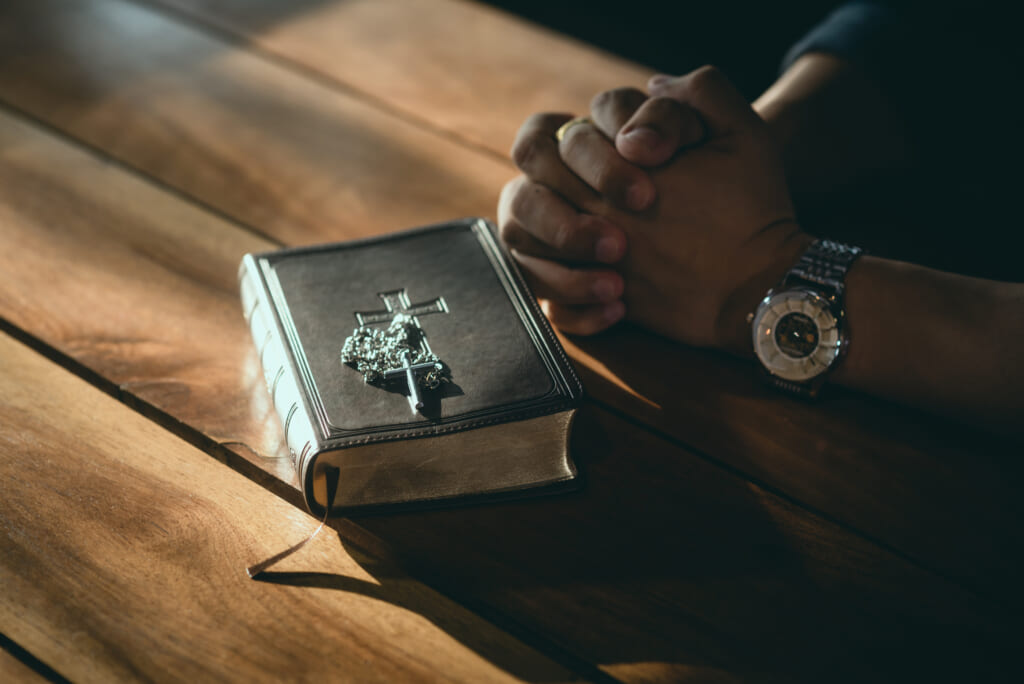Private prayer, going to church linked to better heart health in Black Minnesotans, Mayo study finds
Researchers used data from the Jackson Heart Study as a template to analyze the cardiovascular health of African American participants in Minnesota.
African American churchgoers and spiritual people who pray privately have better heart health than less religious Black people, according to a new Mayo study.
LaPrincess Brewer, an assistant professor in the Department of Cardiovascular Medicine at Mayo Clinic in Rochester, Minnesota, led a study of the benefits of religion on heart health that was published last month in the Journal of the American Heart Association (AHA). Brewer and her team of researchers used data from the Jackson Heart Study (JHS) as a template to analyze the cardiovascular health of African Americans in Minnesota, according to the Star Tribune.
She was surprised to find in the JHS that “religiosity and spirituality were associated with improved cardiovascular health,” Brewer said in the AHA News.
According to a 2017 AHA scientific statement, cardiovascular disease death rates among Black adults are higher than those among their white counterparts.

Since 1998, according to the Star Tribune, the JHS has conducted research on the environmental and genetic factors that contribute to cardiovascular disease among African Americans who live in Jackson, Mississippi. Since its inception, the JHS study has included more than 5,000 adult participants.
The Mayo Clinic researchers analyzed the health and religious data collected for nearly 3,000 people, 66% of whom identified as women with an average age of 54, according to AHA News. On every metric, regular churchgoers and those who often participated in religious activities had better outcomes than those who did not — 50% more likely to be nonsmokers; 16% more likely to meet exercise standards; 12% more likely to have good blood pressure, and 10% more likely to consume a heart-healthy diet. Those who engaged in private prayer also had better outcomes than those who did not.
“Health professionals and researchers should acknowledge the importance of religious and spiritual influences in the lives of African Americans — who tend to be highly religious,” Brewer said.
The JHS findings have been vital in Brewer’s development of a heart health app through the Mayo Clinic’s Fostering African-American Improvement in Total Health (FAITH!) program, the Star Tribune reports. Brewer turned to Black congregants at churches throughout Minnesota to help evaluate the new app as part of a 10-week trial that measured participants’ blood pressure, glucose levels, cholesterol, diet, and body mass index.
The app uses a religious and spiritual approach to address medical disparities affecting the Black community and improve cardiovascular health in underserved ethnic groups. Another benefit is that it allows patients to get health information from a trusted pastor.
By the end of the app trial, Brewer noted that the participants were highly receptive to using digital technology that holds them accountable when it comes to maintaining a healthy diet and active lifestyle.
“With religious and spiritual beliefs factored into our approaches,” Brewer told AHA News, “we may make major breakthroughs in fostering the relationship between patients and physicians and between community members and scientists to build trust and sociocultural understanding of this population.”
Brewer told the Star Tribune that she hopes pastors will use the heart study data to encourage churchgoers to get serious about their health by quitting smoking, eating a heart-healthy diet and exercising regularly.
TheGrio is FREE on your TV via Apple TV, Amazon Fire, Roku and Android TV. Also, please download theGrio mobile apps today!



